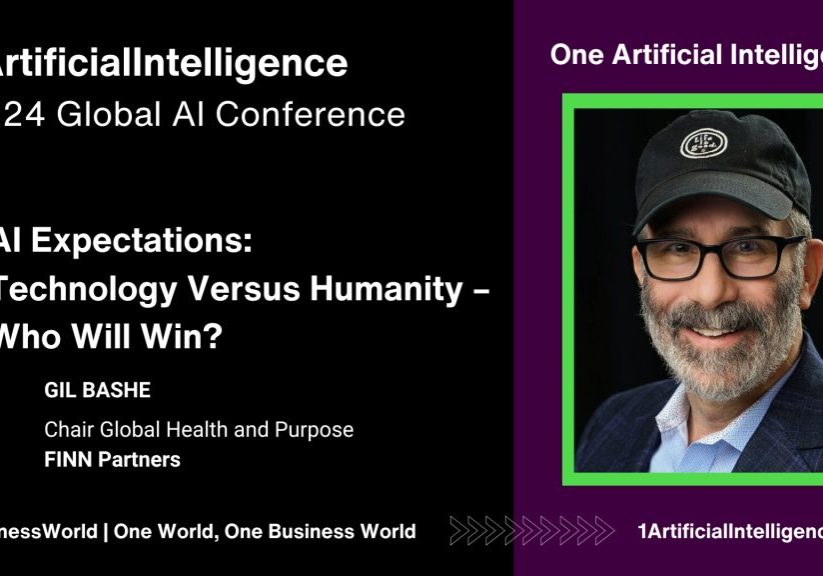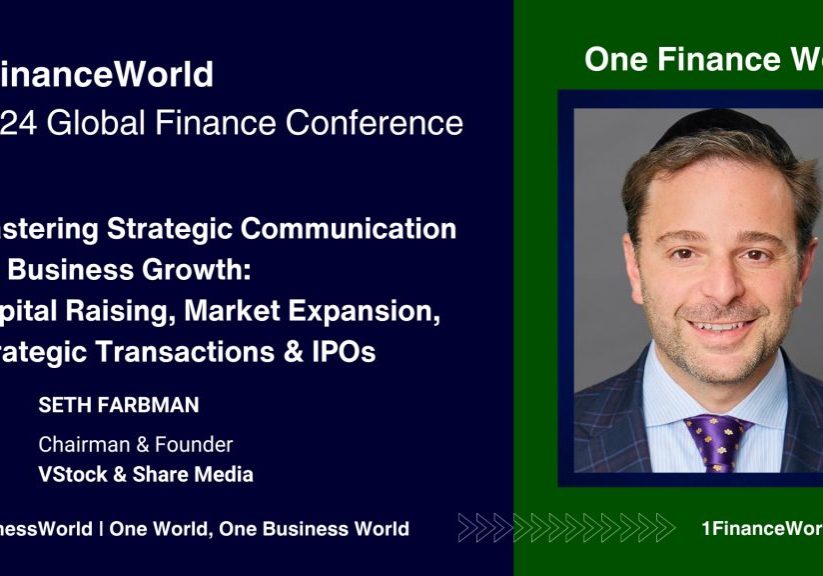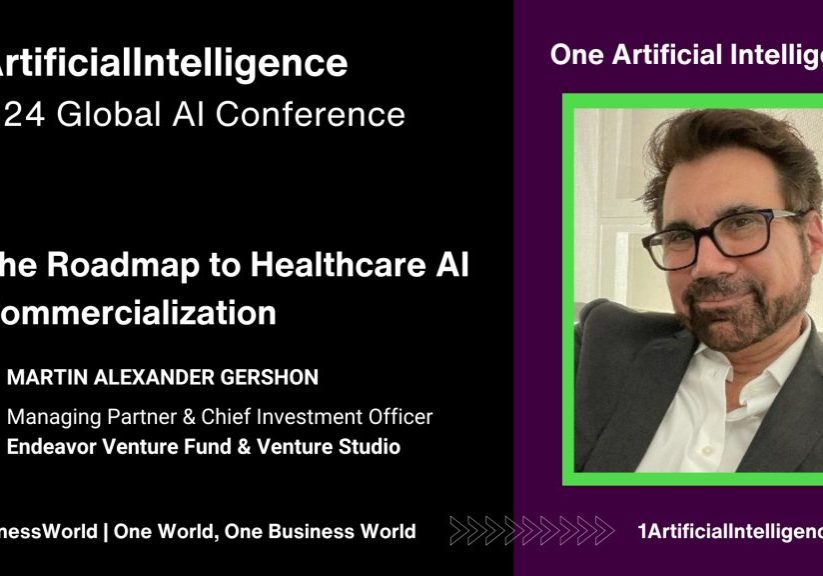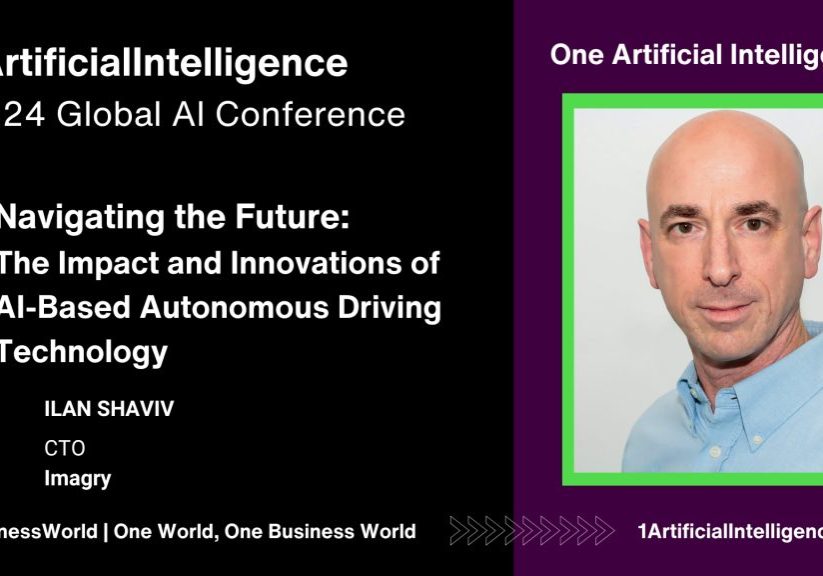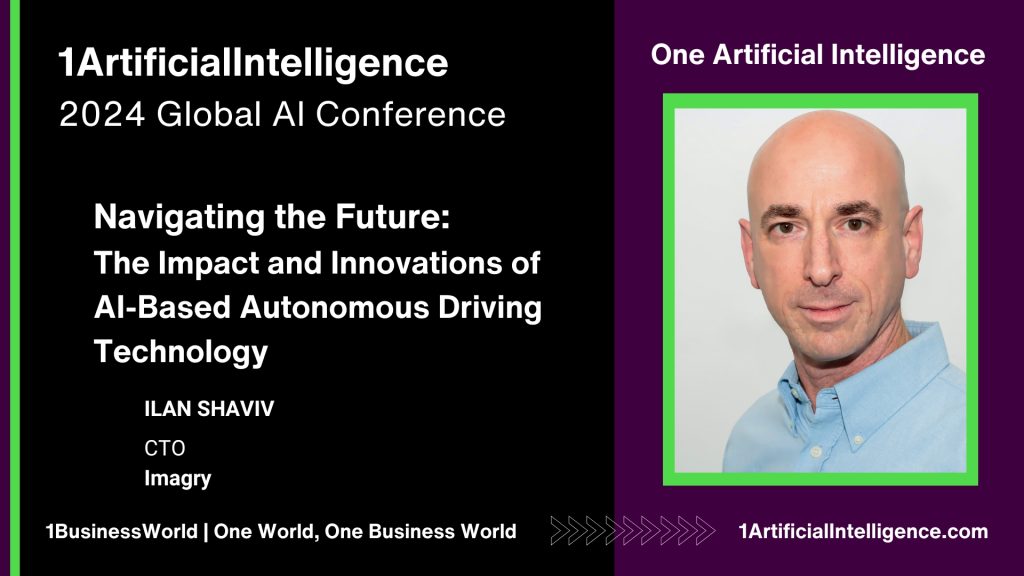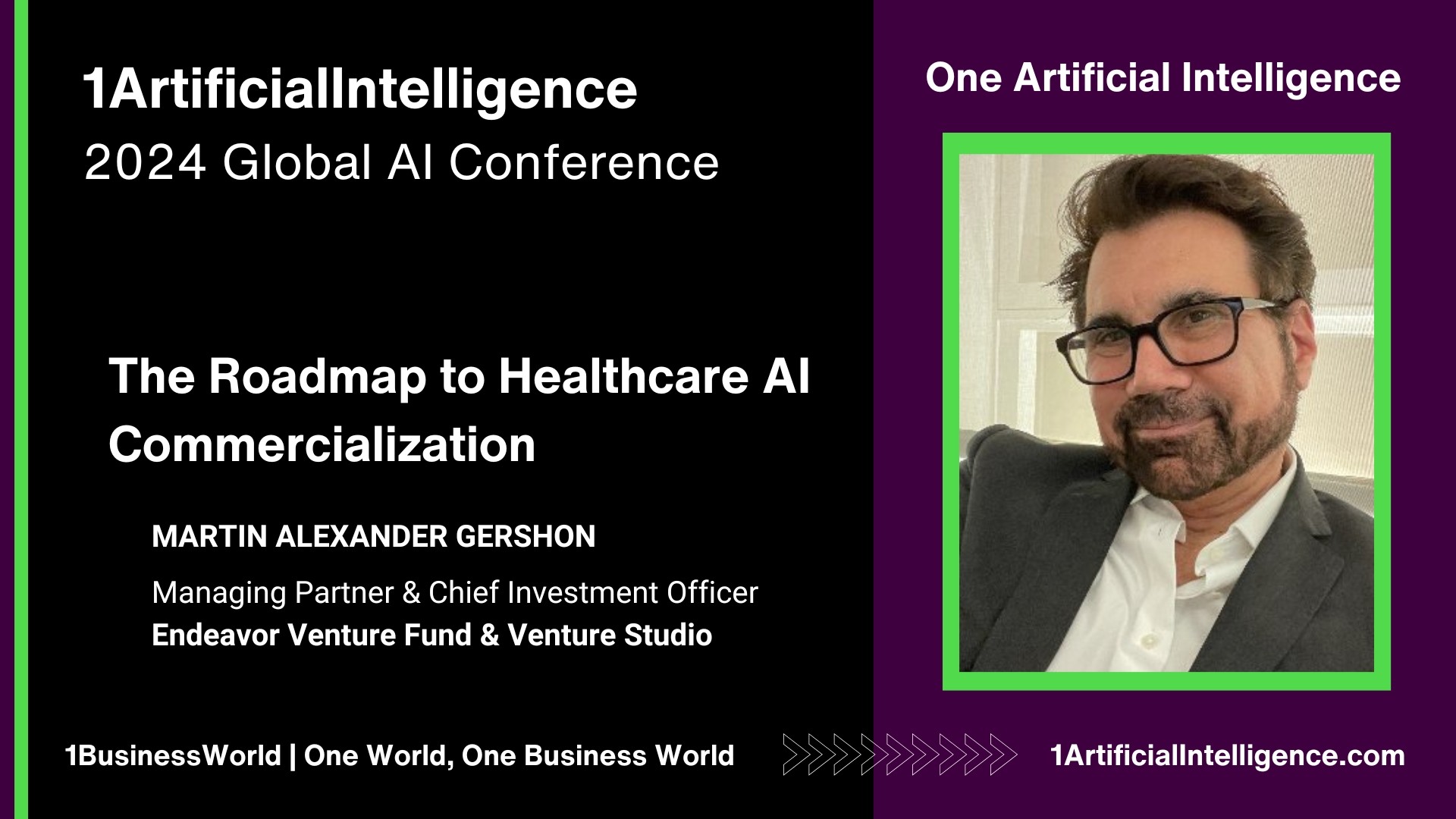
The Roadmap to Healthcare AI Commercialization: Insights from Martin Alexander Gershon
In a compelling session at the 2024 1ArtificialIntelligence Conference, Dr. Martin Alexander Gershon, Managing Partner and Chief Investment Officer of Endeavor Venture Fund & Venture Studio, provided an enlightening talk titled "The Roadmap to Healthcare AI Commercialization." Held on AI Health Day, the conference served as a premier platform for AI enthusiasts, professionals, and thought leaders to delve into the transformative potential of artificial intelligence in various domains, with a particular focus on healthcare.
Dr. Gershon’s session emphasized the pivotal role AI plays in revolutionizing healthcare delivery and innovation. Drawing from his extensive experience and insights, Gershon mapped out the intricate path to healthcare AI commercialization, shedding light on the key players, emerging trends, and strategic collaborations that are shaping this dynamic landscape.
Strategic Vision and Background
Martin Alexander Gershon brings a wealth of expertise to the table. As the Managing Partner and CIO of Endeavor Venture Fund, Gershon has overseen over a hundred investments since the fund's inception in 2009. His advisory role with the White House Moonshot Cancer X Accelerator Program and senior executive position at Techstars underscore his influence in the field. Academically, Gershon has taught at Harvard, MIT, and Johns Hopkins, with a background in oncology and neuroscience from Harvard, Columbia, and Memorial Sloan Kettering. His previous experience as an FDA attorney equips him with a nuanced understanding of the regulatory landscape.
The Bullish Case for Healthcare AI
Dr. Gershon began by addressing the robust investment landscape in healthcare AI, driven by tech giants like Apple, Google, Microsoft, and Amazon. These companies leverage their core competencies in big data, wearable sensors, drug discovery, and digital health to reshape the $14 trillion healthcare market. Gershon highlighted several key factors fueling the investment surge:
1. Increased Liquidity: The healthcare sector boasts ten times greater liquidity compared to other sectors, according to McKinsey.
2. Regulatory Support: A favorable regulatory environment, particularly from the FDA, facilitates the approval and reimbursement of innovative AI-driven healthcare solutions.
3. Pricing Power: Government oversight through centers like Medicare and Medicaid services is enabling substantial pricing power for precision medicine, rare diseases, and gene therapies.
4. Changing Demographics: An aging population and improved access to healthcare are driving demand for innovative healthcare solutions.
5. Personal Health Prioritization: A shift towards personal health and well-being is fostering the growth of new healthcare sectors.
Strategic Investments by Tech Giants
Apple’s Vision for Personalized Healthcare
Apple is heavily investing in wearable sensors and digital health, aiming to dominate the personalized home healthcare market. With initiatives spanning health and wellness, online fitness, home diagnostics, and hospital service integration, Apple is poised to revolutionize healthcare delivery. Gershon emphasized Tim Cook's vision of healthcare being Apple’s greatest legacy, with projections indicating that Apple's healthcare sales could reach $313 billion by 2027.
Key investments include:
- Wearable Sensors: Apple Watch and other devices for health monitoring and diagnostics.
- Home Diagnostics: Initiatives like Sanafi, using vocal biomarkers and AI, and 3EO for infectious disease detection.
- Digital Health Platforms: Online fitness programs and personalized health data integration.
Google’s Big Data Revolution
Google’s core competencies in big data and AI are driving significant investments in drug discovery and healthcare data management. Gershon noted that Google Ventures has invested in nearly 250 early-stage healthcare companies, focusing on areas such as cancer, chronic diseases, and genetic research.
Prominent investments include:
- Flatiron: Acquired by Roche, focusing on cancer data analysis.
- In Silico Medicine: Leading advancements in drug discovery and development.
- 3D Printing of Human Tissues: Innovations in regenerative medicine and drug testing.
Microsoft’s Commitment to EHRs
Microsoft’s investments are centered on electronic healthcare records (EHRs) and big data. The acquisition of Nuance, a voice-activated scribe technology, exemplifies Microsoft's commitment to improving healthcare efficiency and reducing administrative burdens.
Significant initiatives include:
- Pepper Bio: Utilizing AI for precision medicine and drug repurposing.
- PathAI: Enhancing pathology accuracy through AI-driven diagnostics.
Amazon’s Primary Care Ambitions
Amazon is making strides in primary care through telemedicine and digital health platforms. Acquisitions like One Medical and PillPack are enabling Amazon to build a comprehensive digital healthcare ecosystem, providing 24/7 access to primary care and pharmaceuticals.
Key developments include:
- Telemedicine Platforms: Expanding access to healthcare services and diagnostics.
- Pharmaceutical Distribution: Streamlining drug distribution and reducing costs.
Collaborative Synergies and Strategic Partnerships
Dr. Gershon emphasized the importance of strategic collaborations in advancing healthcare AI commercialization. He highlighted several collaborative efforts between tech companies, pharmaceutical firms, academic institutions, and venture capitalists:
1. Sanofi, Capgemini, Generali, and Orange: Forming a collective to drive the digitalization of healthcare and support early-stage companies.
2. Medtronic and Cosmo: Partnering to enhance predictive capabilities in cancer diagnostics through AI.
3. Accelerator Programs: Facilitating collaborations through forums, workshops, and master classes to educate and build trust among stakeholders.
Navigating the Regulatory Landscape
Dr. Gershon acknowledged the pivotal role of regulatory bodies like the FDA in fostering a conducive environment for healthcare AI innovation. He highlighted the FDA’s efforts to approve AI-driven solutions for genetics and rare diseases, paving the way for substantial reimbursement and incentivizing further development.
Key regulatory developments include:
- Software as a Medical Device: Acceptance and reimbursement for AI-driven software solutions.
- Digital Therapeutics: An emerging field gaining regulatory support for reimbursement.
Integrating AI into Medical Education
The integration of AI technologies into medical education is crucial for preparing future healthcare professionals. Gershon underscored the importance of federal funding to support the incorporation of VR, AR, and AI into medical training programs. This integration will ensure that new technologies are effectively utilized to improve patient outcomes.
Examples of educational integration:
- Cosmo and Medtronic Partnership: Enhancing surgical procedures with AI-driven imaging and diagnostics.
- Training Programs: Embedding AI and VR technologies into medical curricula.
Charting the Future of Healthcare AI
Martin Alexander Gershon’s session at the 2024 1ArtificialIntelligence Conference provided a comprehensive overview of the roadmap to healthcare AI commercialization. He highlighted the transformative potential of AI in healthcare, driven by strategic investments from tech giants, collaborative efforts, regulatory support, and educational integration. Dr. Gershon’s insights underscored the importance of leveraging AI to revolutionize healthcare delivery, improve patient outcomes, and create a sustainable future for the healthcare industry.
As we look ahead, the roadmap to healthcare AI commercialization will continue to evolve, driven by innovation, strategic investments, and collaborative partnerships. The journey is just beginning, and the potential for AI to reshape healthcare is boundless, promising a future where technology and medicine converge to deliver unprecedented advancements in health and well-being.


